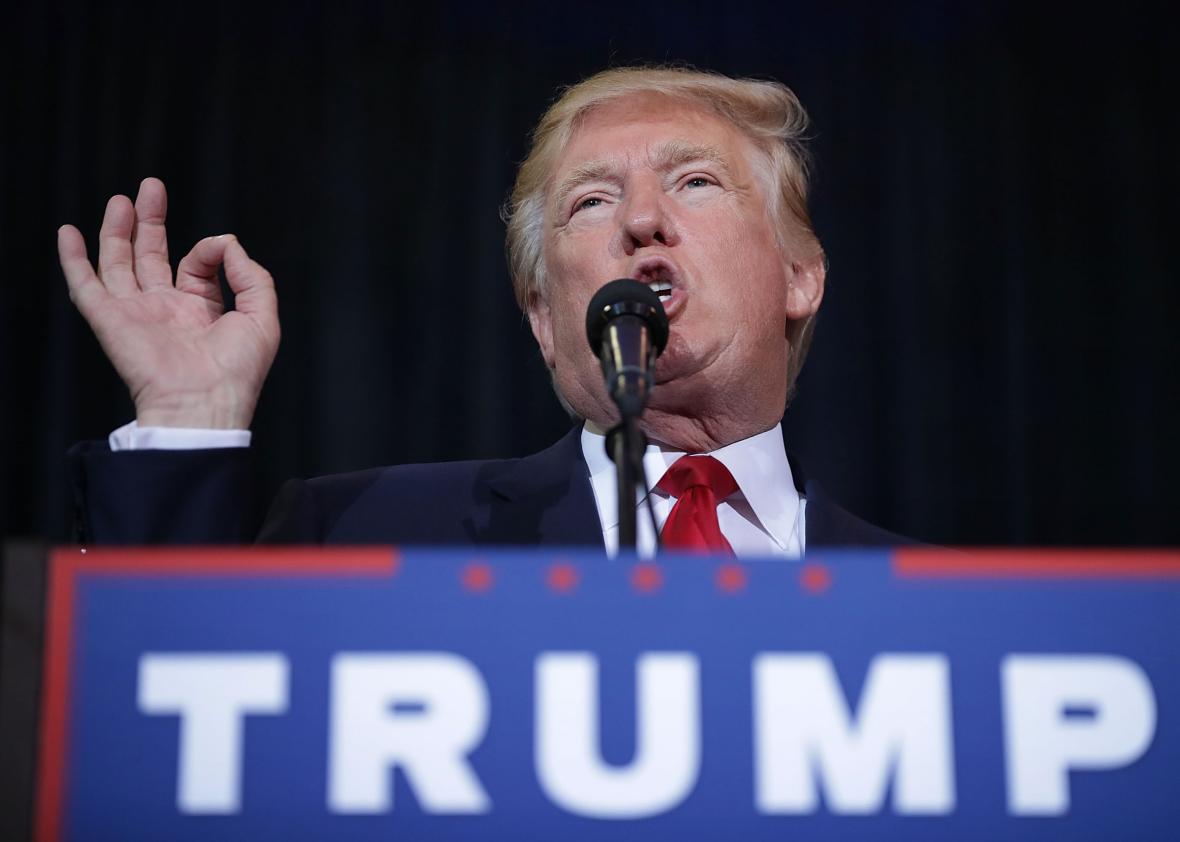As I go to bed early Wednesday morning, I understand that my relationship to my government has changed. There have been presidents I didn’t like, even from my own party. There have been presidents who have made momentous decisions that I considered reckless. But I always believed that those presidents broadly understood the contours of the American system and the American ideal in the same way that I did, roughly the way our founders sketched it out. I always respected their authority and considered them my president. Donald Trump is not my president.
When Trump began his campaign, he had no clear view of the world. He believed in the religion of entertainment and the pleasures of gamesmanship. His desperate craving for adulation, the motivating force in his biography, seemed to provide him passing relief from an aching case of neediness. The character, ripped from reality television, who began the campaign was buffoonish and demagogic. His despicable characterizations of Mexicans and his blazing criticism of the Chinese were coupled with a long, improvised record of ideological transgressions and a tendency to gravitate toward the political positions that best suited his immediate self-interest.
Over the course of this campaign, the man who will serve as our president—I choke on the words—abandoned that cartoonish persona. He morphed into a darker, more resentful figure. All the personal slights—from his fellow Republicans, from the media—radicalized him. It made him more prone toward embracing a nastier view of the world.
It never made sense that a kid from Queens, who wanted nothing more than to succeed in Manhattan, would gravitate to the anti-globalist, net-Confederate fringe. Yet, that’s what happened. Blood-and-soil nationalism were present from the start of his campaign, even if he didn’t exactly understand the thrust of his rhetoric. But his words attracted the far right, which considered him its best ever vehicle for mainstreaming its vile ideals. And because of his deep insecurities, he embraced the people who loved him most.
The Donald Trump who emerged from this campaign subscribes to an ideology far more radical than anything we’ve seen in recent American history. There was a reason he signed up Steve Bannon to be his campaign guru—a man who believes in aligning the Republican Party with the far right parties of the world. This embrace of the European style of ethnocentric nationalism is alien to American conservatism, even if conservatives here have often practiced a racist politics. Ronald Reagan and the two Bushes at least genuflected in the direction of cosmopolitanism and to the idea of progress. They did so with genuine conviction even, and they rejected the Hobbesian counter-enlightenment beliefs that carried Europe toward Mussolini and Hitler.
So now we have a president-elect with authoritarian tendencies assuming a presidency that has never been more powerful. Over the course of the past 20 years, we have invested ever more authority in the executive branch of government—we have given presidents the power to launch war without congressional consent, and we have given them the power to rewrite the crucial details of domestic policy without any legislative stamp of approval. We rarely worried about investing the presidency with such latitude. It seemed a rational response to legislative gridlock, the only way to keep the country moving. And it seemed reasonable to believe that the considerable power of the presidency would be wielded by a person who respected the Constitution and the norms of American government.
Perhaps, I’m not being blunt enough: Donald Trump is an authoritarian assuming the office of the presidency at the peak of its imperial powers, unhindered by the drag of divided government.
The people have spoken—and the people have set in motion a path that threatens our republic, at least as we know it. They have chosen to take the country in the direction of illiberal democracy. They have selected a leader who hates the First Amendment, who has shown a proclivity for imposing religious and ethnic tests on the citizenry, a leader who has benefited from an enemy power’s intervention in our democratic process. Donald Trump is not my president, and perhaps he’s not yours, but he will have more power over us—and the inclination to use it—than any president in American history.
